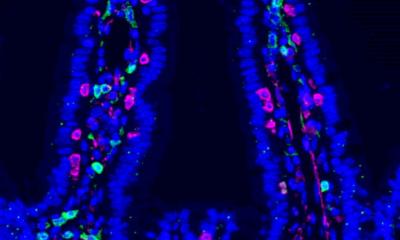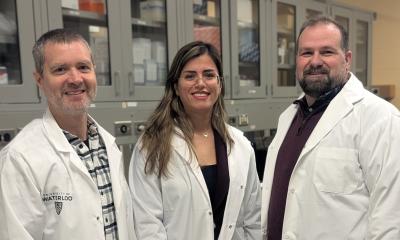© BibbidiStudio – stock.adobe.com
News • Microbial influence on treatment
Study explores the role of bacteria in cancer
Researchers at the Netherlands Cancer Institute have compiled a detailed catalogue of bacteria living in cancer metastases.
Having analyzed over 4000 tumors, they shed light on the diversity of these co-inhabitants and how they might interact with cancer cells and their surroundings. For example, certain bacteria were linked to a worse response to immunotherapy. This study paves the way to a better understanding of how bacteria help or hinder cancer (therapy), and how this can be used for patients’ advantage. The researchers publish their findings in the scientific journal Cell.
The billions of microorganisms in and on a patient – bacteria, viruses and yeasts – cooperate with our immune system in the fight against pathogens. Gut bacteria in particular have been extensively studied, including in the context of cancer. For example, they can influence the effectiveness of immunotherapy and chemotherapy. However, significantly less is known about the microbiome outside the gut; the bacteria found in tumors, for example. With new techniques, researchers are getting better at finding out which microbes they are. But how bacteria get to a tumor and what exactly they do there remains largely unknown, making it unclear how important they are to disease and the effect of treatments.
Which bacteria are present in a metastasis is strongly related to the location in the body, the conditions there, and the cancer type
Thomas Battaglia
Because many patients eventually die from metastases, and many treatments target them, the research groups of Emile Voest and Lodewyk Wessels took a closer look at those metastases. After all, little was known about bacteria in these tumors. Together with their colleagues at, among others, the Netherlands Cancer Institute and Oncode Institute they have now mapped which bacteria are present in cancer metastases.
In tissue from more than 4,000 metastases of 26 types of cancer, the researchers analyzed the code of the DNA present to examine which bacteria are present. For this purpose they used clinical information and DNA data generated by Hartwig Medical Foundation. With that data (400 terabytes), they used advanced computing to assess which bacteria congregate where. This required a lot of clever programming, because there is relatively little bacterial DNA in such a piece of tissue. "Surprisingly, it’s not just metastases from colon cancer that contain a lot of bacteria," says researcher Thomas Battaglia. One might expect that because most of our bacteria reside in the colon, from where they could possibly travel along during metastasis to elsewhere in the body. “Also, which bacteria are present in a metastasis is strongly related to the location in the body, the conditions there, and the cancer type.”
The researchers also discovered a link between bacteria and therapy efficacy. Patients with lung cancer and Fusobacterium in their metastasis, for example, responded worse to immunotherapy than peers without that bacteria. Thomas: "We also noted that the more diverse the bacterial community, the more active the adjacent tumor cells."
"Our work opens doors for exploring new forms of treatments, for example against bacteria that might help the tumor," co-author Iris Mimpen says. "It helps us understand how the complex environment of tumors works, an environment in which all kinds of cells - including bacteria - live together and influence each other."
Source: Netherlands Cancer Institute
10.04.2024





